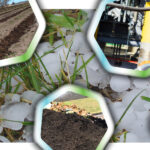
Nora Goldstein
BioCycle December 2013
The second listed definition of the word “progress” in Webster’s Encyclopedic Unabridged Dictionary of the English Language is: “Developmental activity in science, technology, etc. esp. with reference to the commercial opportunities created thereby or to the promotion of the material well-being of the public through the goods, techniques, or facilities created.” (The third definition is “advancement in general.”)
Based on that definition, we can say with confidence that organics recycling — as an industry, a practice, a behavior, a science — is making progress. Progress in tapping the commercial opportunities, and progress in advancing the well-being of the public. Using these parameters, things are pretty good.
But ultimately, progress has to be measured empirically. BioCycle does this via surveys of projects in a variety of sectors, as well as quantifying waste generation and diversion. BioCycle formally began national surveys in the 1980s, first tracking biosolids composting in 1983, and kicking off its well-known State of Garbage In America survey in 1988. We then started measuring the number of composting facilities by various feedstock types, e.g., yard trimmings, mixed municipal solid waste (MSW) and source separated food waste. Eventually, we started surveying residential food waste collection programs. In the case of each survey, the first time it is conducted creates a baseline; from then on, progress, or the lack thereof, can be measured.
Over these many years, BioCycle has relied on state organics recycling officials to provide data on composting activity; more recently, these same people are tracking (or are at least aware of) anaerobic digestion projects as well. What we have discovered in the past 10 years or so is that less tracking is taking place, primarily because certain types of operations do not need to apply for permits from the state agencies and thus offices with very limited staff prioritize tracking facilities that do require permits. As a result, the exploding adoption of food waste composting at K-12 schools, colleges and universities, corporate campuses and health care institutions goes undetected. So does a lot of the on-farm composting activity, as well as yard trimmings composting (many states only require a registration). Tracking anaerobic digestion projects is also a challenge for a somewhat different set of reasons.
We continue to measure progress in organics recycling by tracking facilities. Starting in the spring of 2013, BioCycle and the Biodegradable Products Institute and several BPI members, began updating the listings in BioCycle’s on-line directory of composting facilities, www.findacomposter.com. This undertaking has been supplemented by outreach to state organics recycling officials.
One factor that cannot be underestimated, however, is progress that has been made in organics recycling as a behavior. While one school may have one on-site composting bin, hundreds of children in that school are taught the behavior of organics recycling. Multiply that by hundreds and hundreds of schools. That measurement is downright exciting.









